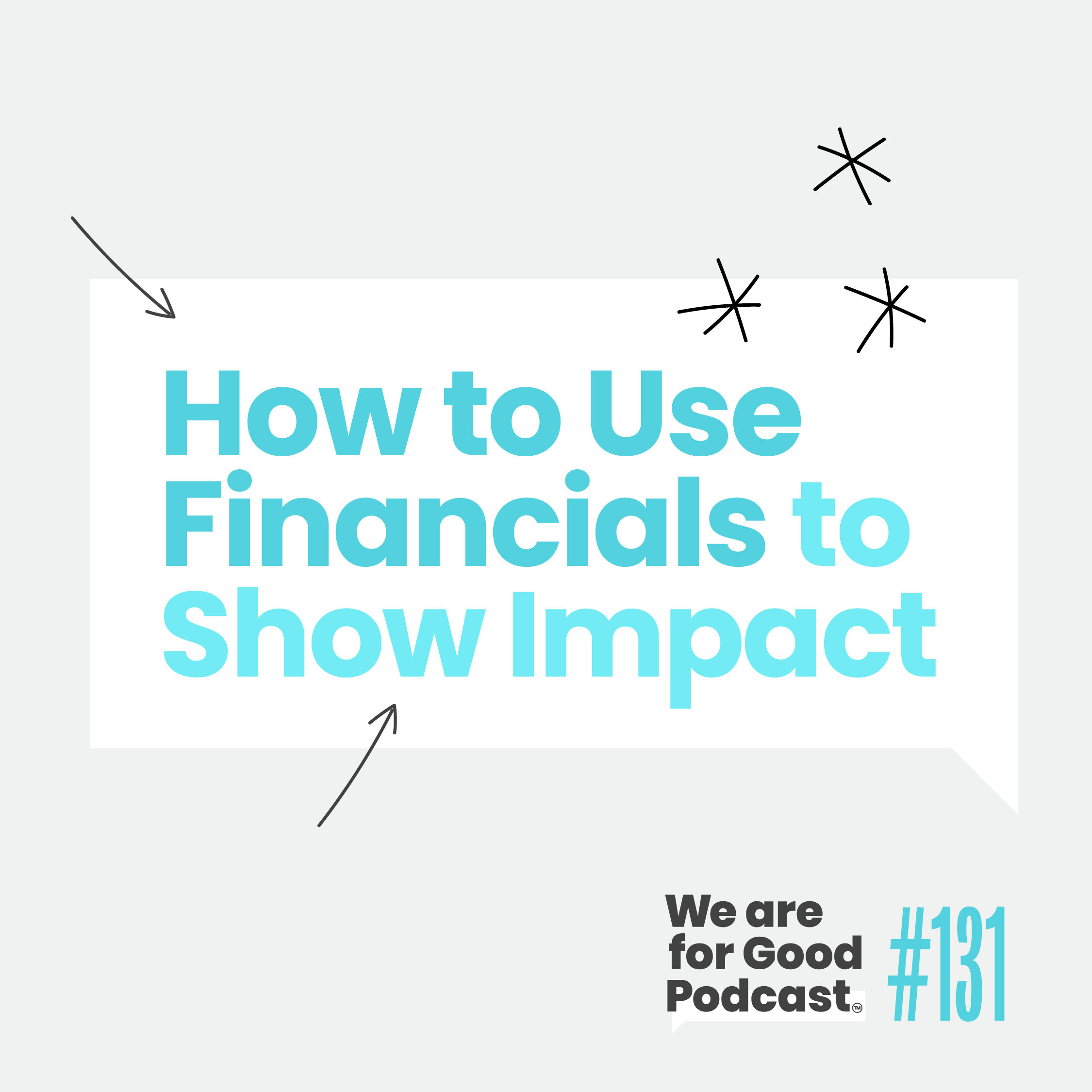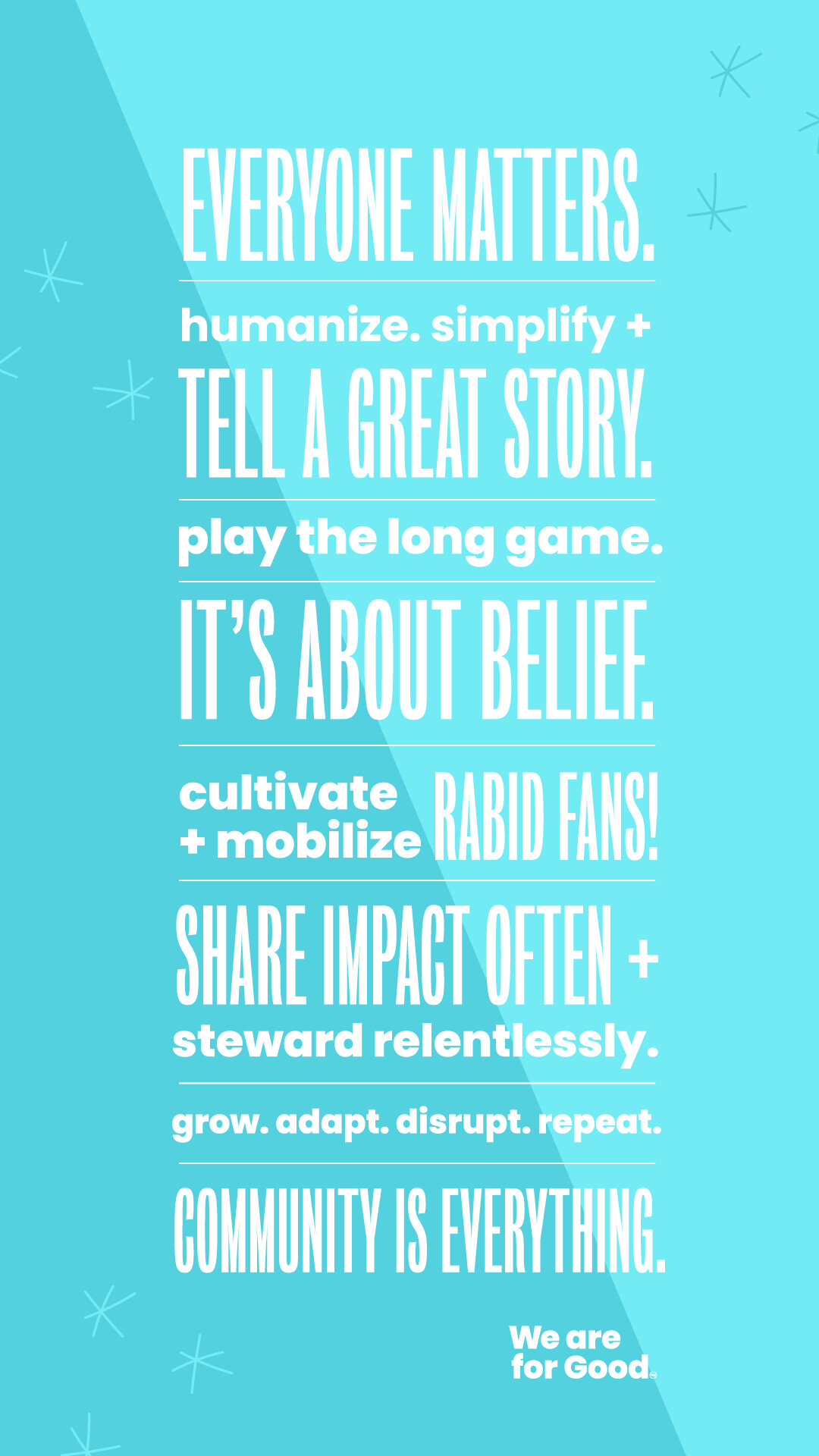131. How to Use Financials to Show Impact - Stephanie Skryzowski
Listen to this episode
Overview
Meet Stephanie. She's a nonprofit purist with a passion for numbers and making them work for you in a most non-intimidating way. We're learning how nonprofit leaders can use their numbers to tell a more robust story, and how transparency around your numbers can lead to greater contributions. Numbers can do that?! You bet they can. Tune in and learn how.
Today’s Guest
Stephanie Skryzowski, Founder & CEO of 100 Degrees Consulting
“When people know their numbers, they feel a greater sense of ownership in contributing to the greater good of the organization, and that leads to greater engagement.”
Episode Transcript
Download Full Episode Transcript Here
Episode Highlights
Stephanie’s Background - 2:54
Threading together numbers and non-profit - 6:15
Example full of numbers - 9:50
Practical first steps - 11:57
Why is transparency important? - 17:03
Number Hacks - 19:31
Stephanie’s One Philanthropic Moment - 23:33
Why hire a CFO? - 27:08
Stephanie’s One Good Thing - 29:28
Powerful quotes
“I feel like finance is one of you know, few departments that really touches everybody in the organization. And, you know, we're sort of like at the hub, like everybody needs things from finance, and we need things from everybody else. And so I feel like the finance department is just so central.” - Stephanie
“While tons of organizations get audited, we all get our audited financials back, not very many, proactively share those results. And I love that because it just really does breed a sort of culture of transparency.” - Stephanie
“The audit is such a big part of so many organization's operations and the things that are part of like our sort of annual cycle of managing and managing a nonprofit, but not many proactively share those results. And so I love that, and I encourage all of our clients to do that, like, let's put together an email where we're talking about the results of our audit, we're sharing, we're like attaching our audited financials or sharing the link to them, so people can actively go look at them because that's really, really important.” - Stephanie
“The budgeting process should be very inclusive and include the development team from day one, both on the development team expenses, as well as the revenue like, what is our fundraising plan? What are our goals, let's not just say, okay, we want to raise $5 million this year, let's map it out by source by month. So that is all part of the process.” - Stephanie
“I really believe that when you're more transparent about your numbers, both to your donors, of course, but also internally, that breeds greater ownership. When people know their numbers, they feel a greater sense of ownership in contributing to them and to contributing to the greater good of the organization, and that leads to greater engagement.” - Stephanie
“By being really connected to the numbers, like you are just much more recession proof if you have an understanding of what's happening and how we're, you know, what, what's driving the numbers that you're seeing. So I love that we're advocating more people being honed in on that - preach.” - Jon
“I feel like often, especially in the budget creation process, we nonprofit professionals often come to it from a very scarcity minded place like okay, we can raise $2 million this year. Let's try and cram in as much as we can into the expense budget to like do as much as possible with as little money as possible. So we we are Thinking about it all wrong when we're budgeting on the nonprofit side of things, rather than, okay, let's think about what is the impact that we want to have this year? Let's create our expense budget based on that impact.” - Stephanie
“So it's that it's that abundance versus scarcity, that I feel like entrepreneurs, we feel like the sky's the limit, anything is possible, like the opportunities are limitless. And I would love to see more nonprofit leaders embracing that.” - Stephanie
“I think half the battle, is mentally getting yourself in the mindset game of looking at things differently, questioning things that have always been done before. And I think that that naturally leads itself to sitting down with your operations manager, and just having an honest conversation, just like you would with a donor.” - Becky
“I was like, This is it, this is this is why I'm here. And the fact that I am able to contribute in like, the tiniest way to something that is so life changing for this family and so many others, was just that was like my lightbulb moment. - Stephanie’s One Philanthropic Moment
“I get this confusion a lot, because a lot of times you think if you hire a numbers person, they're gonna do all the things. But a bookkeeper is really that person who is kind of in, you know, QuickBooks or whatever you're using in the day to day make sure things are accurately coded and reconciled. And we're following all the rules. And that's very, very important. But what they are not doing is giving that strategy and analysis and taking those numbers to the next level. So taking the income statement, taking the balance sheet, interpreting that and using that to help shape future decisions, and help shape the strategy of the organization. And that's where a CFO comes in.” - Stephanie
“I believe that what you focus on expands.” - Stephanie’s One Good Thing
Connect with Stephanie
Join the Good Community!
The We are for good community
This is a safe place for deeper conversations. While we love this podcast, it is a very one-sided dialogue. It is great for starting conversations, but not continuing them. You can find friends, colleagues, and others to champion alongside. We believe community is everything and we wanted to create a place where people could learn and thrive and grow together (and also have a whole lot of fun).













